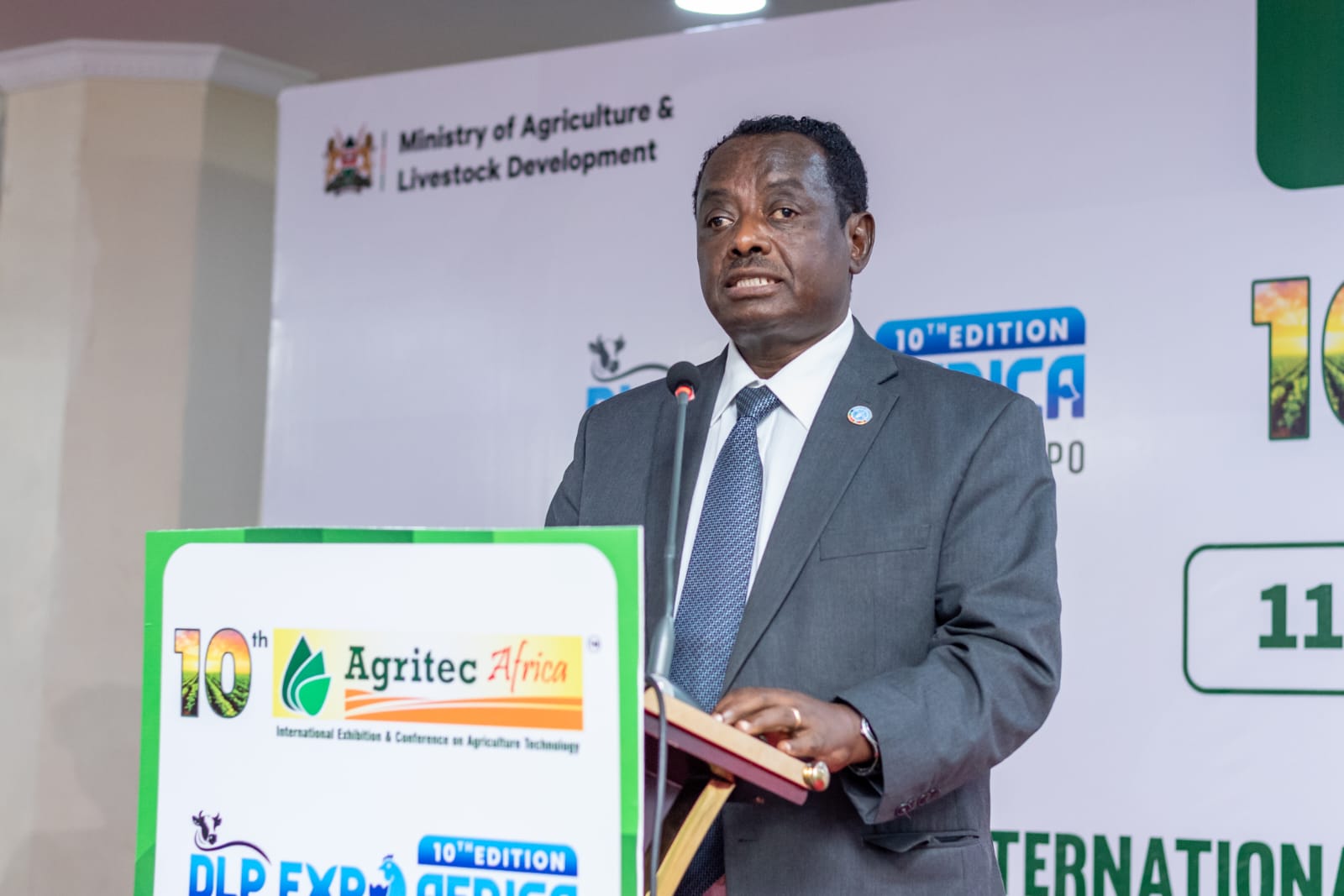
Agricultural technology is no longer a luxury but a lifeline for Africa’s food systems, a top UN official has said, urging countries to scale up innovation to tackle hunger, climate shocks, and a growing population.
“The power of technological innovation offers us a pathway not just to increase productivity, but to build systems that are smarter, more resilient, and more inclusive,” said Haile-Gabriel Abebe, Assistant Director-General and Regional Representative for Africa at the Food and Agriculture Organisation.
Abebe was speaking during the opening session of the 10th AGRITEC Africa International Exhibition and Conference at the Kenyatta International Convention Centre, Nairobi.
The event, themed "Harnessing Technology Towards the Transformation of Our Agri-Food Systems", has drawn stakeholders, exhibitors, and members of the public to explore emerging solutions in agriculture.
Abebe noted the triple challenge facing Africa on producing more food, ensuring its safety and nutritional value, and doing so sustainably amid climate variability, rapid urbanisation, and a growing population.
“At a time when Africa is grappling with food security challenges, climate shocks, and demographic pressures, technology is not a ‘nice to do’, it is a ‘must do’,” he said.
Citing UN global hunger statistics, Abebe noted that over 735 million people worldwide face hunger, highlighting the scale of the crisis.
In his remarks, Kenya’s Cabinet Secretary for Agriculture, Mutahi Kagwe, echoed the call for innovation, particularly precision farming, which enables farmers to tailor inputs such as water, fertilisers, and pesticides to the exact needs of each crop.
“This not only boosts productivity but also lowers costs and minimises environmental impact,” Kagwe said.
He added that smart irrigation systems powered by sensors and data analytics help farmers manage water resources more efficiently, crucial in the face of climate-induced water scarcity.
“By conserving water and energy, these technologies support sustainable farming while also helping farmers save on costs,” Kagwe said.
Kagwe also pointed to the benefits of digital platforms, e-commerce, and mobile apps, which connect farmers directly to consumers and eliminate middlemen.
“Blockchain technology, for instance, can improve transparency and traceability in supply chains, opening up premium markets for high-quality agricultural products,” he added.
The CS called on the private sector to help develop and scale solutions tailored to the needs of farmers, while urging civil society to ensure inclusive access, especially for smallholder and marginalised farmers.
Abebe commended Kenya’s progress in digital agriculture, citing platforms like Kenya Integrated Agricultural Management Information System (KIAMIS), used for farmer registration, e-Voucher system for input subsidies, eLocust4 system, which enabled Kenya’s swift response to the 2020 desert locust invasion, and digital land governance and climate-smart agriculture initiatives supported by AI and data technologies.
“These innovations go beyond efficiency. They enhance resilience, promote nutrition, and ensure equity. With technology, farmers can produce more with fewer resources, access timely climate alerts, and connect to competitive markets,” he said.
Importantly, Abebe pointed out that digital tools can empower women, youth, and smallholders, helping them not just survive but thrive in modern agricultural ecosystems.
“Technology is not the future, it is the present. Kenya is already leading the region in digital agriculture. Now is the time to scale, connect, and transform,” he said.
“Together, we can build food systems that nourish every Kenyan,
sustain our environment, and drive inclusive growth for generations to
come.”



















